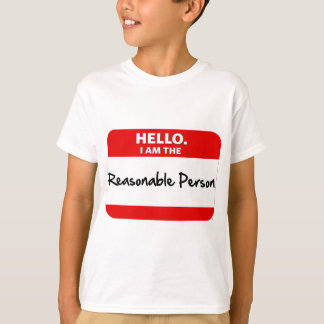I always used to think I was pretty objective and mostly knew what was normal, reasonable or accepted. I never really questioned my responses to things, but I think this was because growing up at home my family and few friends were pretty easygoing and pretty similar to me. We never felt the need to dictate to each other how to do things or what opinions to have. We were often approaching things from the same direction and our opinions were often similar, and when they weren't, it was fine to differ and that didn't threaten or offend anybody.
I will ignore questions of fact here, as fact-based disagreements are more a matter of negotiating by tact and I covered this a little in my previous post on memory.
It's opinions, expectations and ways of doing things that are more of a problem, when there is no "right answer" or each party is equally convinced of the correctness of their perspective.
 I know that my opinion or way of doing things isn't necessarily the only valid one, and a different way may seem as good to someone else as my way seems to me ("every man is right in his own eyes"), but I also know that I am entitled to an opinion.
I know that my opinion or way of doing things isn't necessarily the only valid one, and a different way may seem as good to someone else as my way seems to me ("every man is right in his own eyes"), but I also know that I am entitled to an opinion.I find it really difficult to balance these two points. How often should one give way to another? For many years it didn't occur to me to form my own opinions, and when I did I rarely expressed them, assuming that they were erroneously formed or otherwise invalid. When I eventually developed a sense of myself I realised I was sometimes right when I differed from others and I became able to stand on my own two feet, but I lost some of the gentleness I had before I realised it was OK to be me.
I can't sustain denying or hiding my (autistic or personal - if indeed it is possible to distinguish) opinions the way I used to, but I can't bear the thought of trampling on other people to be me.
| I think it works something like this, but how do you know what is a want and what is a need? |
When the problem continues despite repeated attempts to explain, then I assume my reaction must be unreasonable and I must learn to deal with the issue, no matter what it costs me. Can anyone tell me whether this assumption is correct?
I think it also depends on who the other person/people is/are. A matter is often easier to resolve with work colleagues because you are less emotionally involved and afraid of offending them, and I think it's understood that people will differ and just get on with things in their own way, which is harder when it's things in your own house with your own family.
I was also going to write here about What is Reasonable in conversation and social interaction, but I think I will split it into two posts as it's becoming a bit lengthy!
So I think there are no magic answers to working out what is reasonable, and that each case is different depending on the situation. That is what makes it such a tricky subject, because there's no objective "fairness" formula and no quick answer. I just hope that as I get older and more experienced, these conundrums will become clearer to deal with and I will get better at accepting other ways of doing things.
Please comment if you have anything to say on this matter - it's a really tricky one for me!
